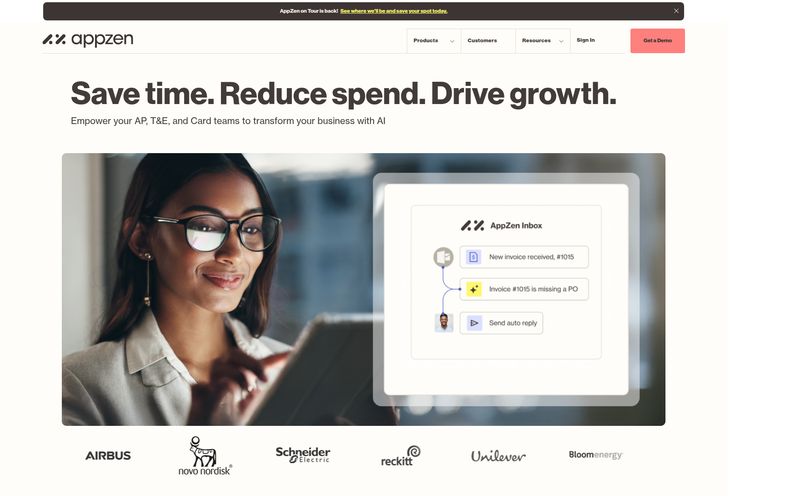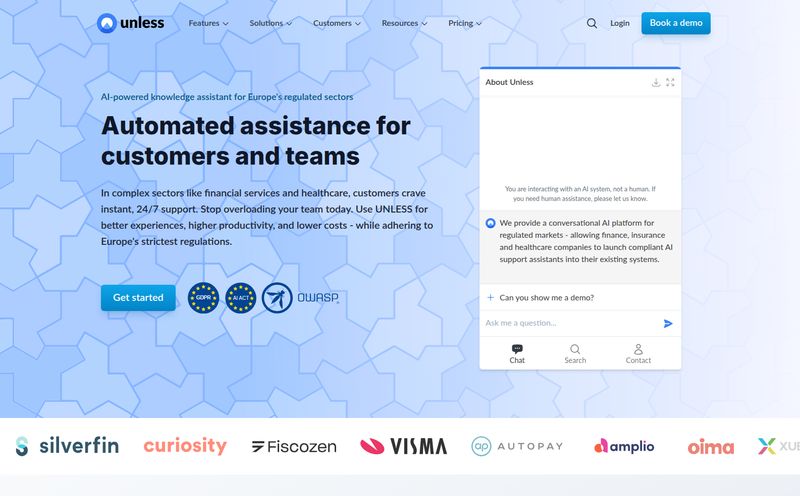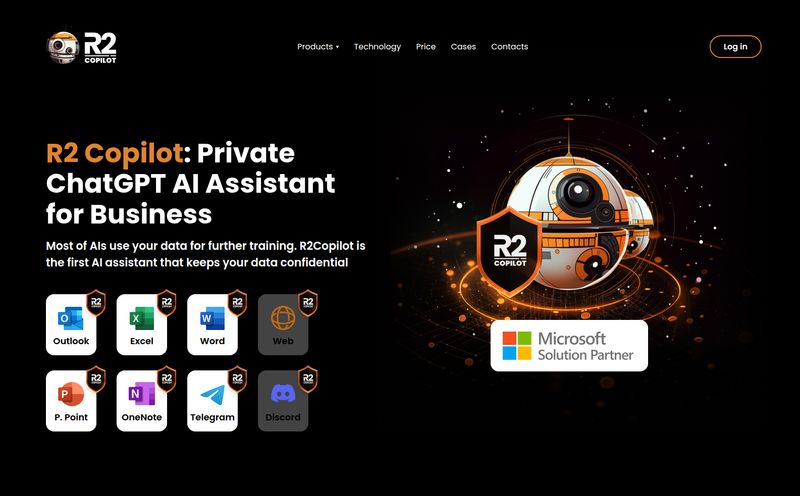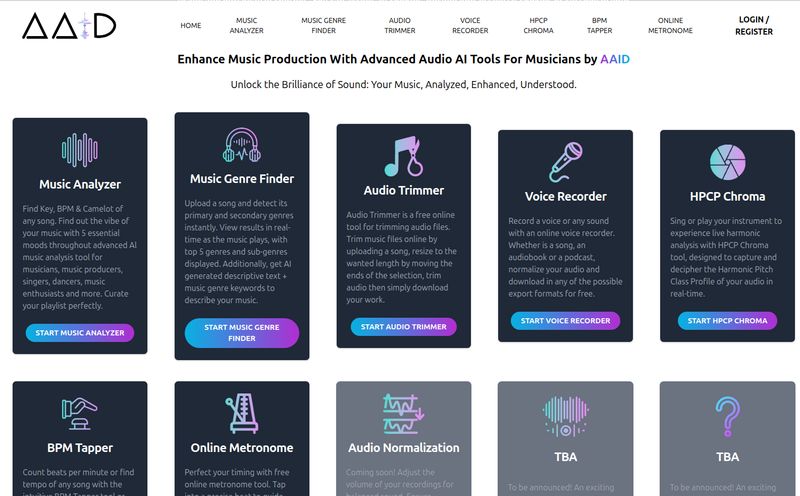Let me paint you a picture. It’s Monday morning. You’re the marketing manager for a brand with 75 locations across the country. A new holiday is coming up, and you need to update the store hours for every single location. On Google. On Yelp. On Apple Maps. On... you get the picture. Your life suddenly revolves around a monstrous spreadsheet, a dozen different logins, and the cold, creeping fear that you're going to type "9 PM" for the one store that closes at 6.
We've all been there in some capacity. That chaos is the exact problem a platform like Yext aims to solve. I’ve been in the SEO and traffic game for years, and I’ve seen countless tools promise to be the “one platform to rule them all.” Some are good, some are... not so good. So when I look at Yext, I’m not just seeing the flashy website; I’m looking under the hood. Is this thing really the enterprise-grade engine it claims to be, or is it just another shiny hood ornament?
So grab your coffee. Let's get into a real, no-fluff look at what Yext is, what it does well, and who should honestly just keep using their spreadsheet for now.
What Exactly is Yext Trying to Solve?
At its heart, Yext is trying to fix a fundamental tension in marketing for chains and franchises: the battle between global brand consistency and local customer connection. You want your brand to feel the same in Boise as it does in Boston. But you also need the Boston location's page to talk about the Patriots and the Boise location to have accurate information about its parking situation.
Yext’s answer to this is what they call their “Knowledge Graph.” It sounds a bit techy, but the concept is brilliant. Think of it as a central brain for your brand. Every piece of public-facing information—addresses, phone numbers, hours, photos, product descriptions, promotions, doctor specialities, you name it—lives in this one place. It’s the single source of truth.
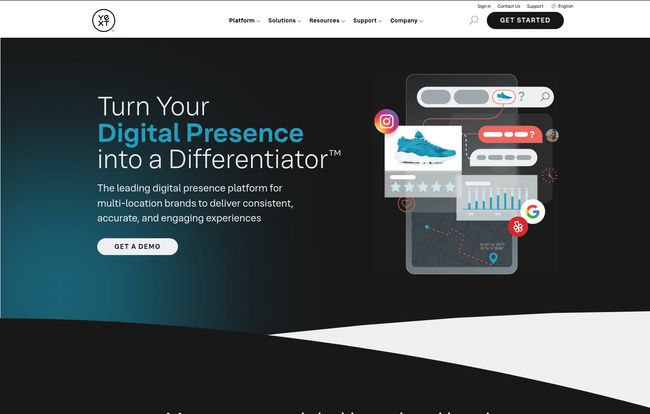
Visit Yext
From this central brain, Yext then pushes that information out to all the places your customers are looking. It's like having a master key that doesn't just unlock doors but also updates the nameplate on every single one of them simultaneously. This is the core idea: control everything from one dashboard and ensure consistency everywhere.
A Look Under the Hood: Yext's Core Features
Okay, so the “central brain” analogy is nice, but what are the actual tools in the toolbox? Yext breaks its platform down into a few key areas, each tackling a different piece of the digital presence puzzle.
The Foundation: Listings Management
This is the bread and butter. This is the feature that solves that spreadsheet nightmare I mentioned earlier. Instead of logging into a hundred different directories, you update your info in Yext, and it syndicates it across their network (which includes the big players like Google, Amazon Alexa, Apple Maps, Yelp, and many more). Seeing them boast about managing 1.2 billion listings is one of those numbers that's hard to even conceptualize, but it speaks to the scale they operate on. It's not just about changing your hours, it's about making sure your brand's core data is correct, consistent, and complete across the entire web.
Powering Your Own Search
This is where things get really interesting, in my opinion. We spend so much time optimizing for Google, we sometimes forget about the search bar on our own website. Yext Search aims to make your on-site search experience as good as Google's. It uses AI to understand what users are actually asking and deliver direct answers, not just a list of blue links.
Think about a potential patient on a hospital website searching for “cardiologists who treat arrhythmia near me.” A traditional site search might fail. Yext Search is designed to understand that query and pull structured information directly from the Knowledge Graph to provide a list of relevant doctors. The Domino’s case study I saw on their site—a 225% increase in site search volume—is a testament to this. When search actually works, people use it.
Managing Your Reputation and Social Buzz
Reputation management is huge, especially for local businesses. Yext pulls in reviews from across the web into one feed. This allows a central team or local managers to monitor and respond without having 50 tabs open. You can create templates for common responses and get analytics on sentiment trends. It also hooks into social platforms, allowing for scheduling and publishing posts, again with an eye toward that global-versus-local content balance. It's about controlling the conversation, or at least being an active participant in it, at scale.
Building High-Converting Local Pages
This is a big one for local SEO. Yext Pages helps you create landing pages for every single one of your locations, automatically populated with the correct info from the Knowledge Graph. These pages are built with SEO best practices in mind—they're fast, mobile-friendly, and include schema markup right out of the box. For a brand with hundreds or thousands of locations, building and maintaining these pages manually would be a full-time job for an entire department. Here, it’s largely automated. This is how you start ranking for those coveted “near me” searches and actually drive foot traffic.
The Good, The Bad, and The Complicated
Alright, no tool is perfect. Let's get into the real talk. What I really like about Yext is the sheer comprehensiveness of it all. The idea of a single platform to manage listings, reviews, pages, and on-site search is incredibly compelling. It creates a closed-loop system where your own data fuels better customer experiences. The AI-powered tools and the potential for true scalability are huge pluses for the right kind of company. It feels powerful.
Now, let's be real for a second. This power comes with a few strings attached. First, Yext can be complex. This is not a tool you sign up for on a Tuesday and have mastered by Wednesday. It requires a proper implementation process, and as their own site shows, it's designed to integrate with your existing marketing solutions like Salesforce and Adobe, not necessarily replace them. That adds a layer of technical setup.
And then there's the elephant in the room: pricing. Yext doesn't list prices on its website; it directs you to “Get a Demo.” In the software world, that's the universal sign for “This ain't cheap.” This is an enterprise-level solution, and it carries an enterprise-level price tag. For a small business or a startup, the cost is almost certainly going to be a barrier. That’s not really a flaw in the product, it’s just a statement about its target market.
So, Who is Yext Really For?
This is the most important question. Yext is a fantastic tool for a very specific type of organization. If you are one of the following, you should probably be booking a demo:
- Large Retail Chains: Managing hundreds of stores with varying hours, promotions, and inventory.
- Healthcare Systems: Think about all the doctors, clinics, and hospital departments. The data complexity is immense, and Yext is built for that. The OhioHealth case study, with a 33% increase in patient satisfaction, is a perfect example.
- Restaurant Franchises: Like the Domino's example, keeping menus, ordering links, and local specials consistent is a massive challenge.
- Financial Services: Banks and insurance companies with hundreds of local branches and agents.
Who is it not for? If you're a single-location coffee shop, a small online-only business, or a solopreneur, Yext is likely overkill. It would be like buying a battleship to cross a pond. There are more cost-effective tools out there for managing a single Google Business Profile and a handful of social accounts.
Frequently Asked Questions about Yext
What is Yext in simple terms?
Think of it as a master control panel for all your business's public information online. You update your info (like hours, address, photos) in one place, and Yext pushes it out everywhere that matters, like Google, Apple Maps, Yelp, and your own website.
How much does Yext cost?
Yext uses a custom pricing model based on the size of your business and the features you need. They don't publish prices publicly, which typically means it's an enterprise-level investment aimed at larger, multi-location companies. You'll need to contact their sales team for a demo and a quote.
Is Yext a replacement for SEO?
No, but it's a powerful tool for SEO, especially local SEO. By ensuring your business information (NAP - Name, Address, Phone) is consistent and creating optimized local pages, it handles a huge and tedious part of local search optimization. You still need a broader SEO strategy for content, technical site health, and link building.
Can a small business use Yext?
While technically possible, Yext is primarily designed and priced for multi-location and enterprise brands. A small business with one or two locations would likely find it too expensive and complex for their needs. More focused, cheaper tools exist for single-location businesses.
What's the main benefit of the Yext Knowledge Graph?
The main benefit is creating a single source of truth. It prevents data silos and inconsistencies. When your marketing team, web team, and local managers all pull from the same central data hub, you ensure every customer gets the right information, no matter where they find it.
Does Yext integrate with other tools?
Yes, integration is a key part of its offering. Yext has a wide range of integrations with major platforms like Salesforce, HubSpot, Adobe, Zendesk, and more, allowing it to fit into an existing enterprise marketing technology stack.
My Final Thoughts
So, is Yext the answer to all your multi-location problems? Maybe. It’s not a magic wand. It requires investment, both in money and in time to get it set up correctly. But for the right company—one that is currently drowning in the complexity of managing a sprawling physical presence—it could be absolutly transformative.
It turns a chaotic, manual, and error-prone process into a streamlined, centralized, and intelligent system. If you're still wrestling with that monster spreadsheet to manage 75+ locations, Yext might just be the conductor your orchestra desperately needs. For everyone else, it’s probably a bit too much podium for the performance.
